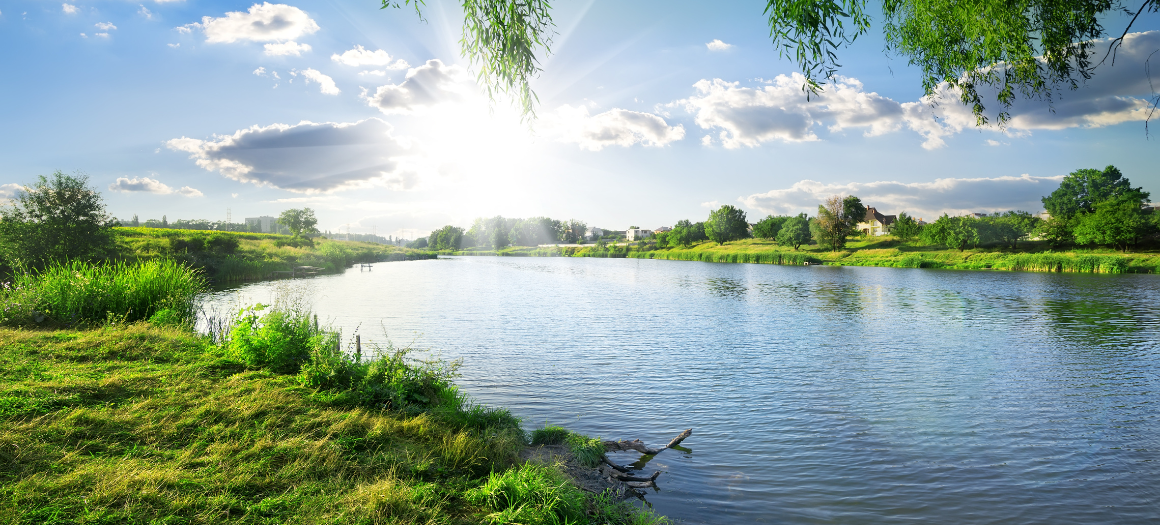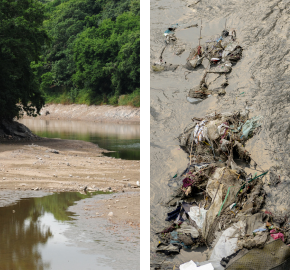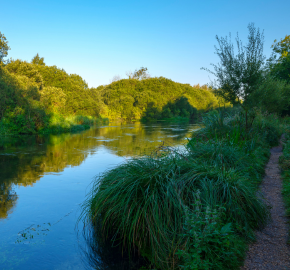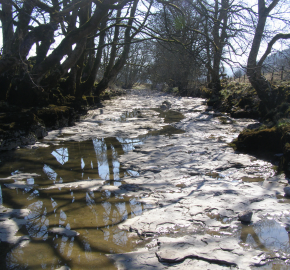As temperatures rise so too does the increasing demand for drought permits

In July, Southern Water submitted a drought permit application to the Environment Agency (EA). The permit, if granted, will allow Southern Water to continue abstracting water from the River Test even under low flow conditions.
Drought permits allow water companies to abstract water from natural resources under low flow conditions. Applications for drought permits are submitted when there has been an exceptional shortage of rain or there is a perceived threat to water supply.
Abstraction in low flow conditions increases the stress wild fish will already be under as a result of drought and has the potential to impact salmon and trout at all stages of their fresh water lifecycle.
An increasing demand for drought permits
Drier and hotter conditions are occurring with increasing frequency. This impact of climate change means the volume and severity of drought events is likely to increase. In fact, we are already seeing an increase in the demand for drought permits from water companies this year.
Southern Water: drought permit application
How does a drought permit change Southern Water’s existing abstraction license?
In March 2018, Southern Water entered into a section 20 operating agreement with the EA under the Water Resources Act 1991. As part of the agreement, Southern Water’s abstraction licences were amended, to help protect the River Test and River Itchen – internationally and nationally designated chalk streams. As a result, Southern Water can no longer abstract water from the rivers under low flow conditions.
To be able to abstract water, under low flow conditions, Southern Water are required to request a drought permit from the EA, as outlined in s.23.1 of the agreement.
Southern Water’s drought permit application
Southern Water’s analysis of rainfall data has identified an exceptional shortage of rain at critical periods from January 2019 through to May 2022. There has been very low rainfall in 2022, with the past 3 months cumulative rainfall the 6th lowest in 131 years, according to historic records. It is for these reasons that they have today applied for a drought permit. This would temporarily amend their existing abstraction licence (11/42/18.16/546) and allow abstraction from the River Test below the existing hands-off flow (HoF) – when the flow falls below a set value and abstraction must stop.
Amendment of the existing license will see the HoF reduced from 355 megalitres per day to 265 megalitres per day for six months from the date of determination.
There are no planned reductions to the amount Southern Water can abstract, under the amended licence (80 million litres per day), during this period. The permit will likely be available for operational use before the end of August.
The impact of drought permits on wild fish
The EA previously identified several factors that could impact River Itchen salmon populations as a result of a successful drought permit application, including:
- Reductions in water velocity and depth, downstream from the abstraction point, could generate physical barriers to migration (physical structures and diversions, typically passable by salmon, during normal conditions, could become impassable).
- Reductions in flow and depth could result in habitat loss, which is particularly significant for spawning and juvenile salmon.
- Low flows causing water temperatures to increase and water quality to decrease would be dangerous to wild fish populations.
Inadequate investment in development
Across its Western supply area, Southern Water serves approximately 381,000 household properties. Water resources in this area are dominated by surface water abstractions from the River Test and Itchen.
During drought conditions, Southern Water do not have alternative water resource options available to secure public water supplies in this area, they rely solely on abstracting water from these two rivers.
This is particularly serious in Southampton West, where Southern Water have no capability of transferring water into the area from neighbouring zones. To manage the demand for water, Southern Water are proposing ‘temporary use bans’ on households, which is expected to be introduced by mid-August.
By inadequately investing in the development of water resource infrastructure, Southern Water have failed to secure a sustainable water supply during periods of drought.
Securing an alternative water supply
Southern Water will have a water supply deficit of approximately 195 Ml/d by 2027, in south Hampshire, during a 1-in-200-year drought event.
It is vital that Southern Water secure an alternative water supply as soon as possible to protect the River Test and Itchen, yet their draft Water Resource Management Plan for 2024 outlines that no additional large scale water resource solutions will be available until early 2030.
Under section 20, Southern Water are legally required to use all best endeavours to find an alternate water resource.
We have been watching Southern Water’s proposed water infrastructure plans closely. As part of this, we are pressing for an extra pipeline to be built between the proposed Havant Thicket Reservoir and Southern Water’s Otterbourne water works. If established, this would secure an alternative water supply, to the area, earlier than is currently being planned.
Preparing for drought events
The Southern Water example is not an isolated case. If drought conditions continue, more rivers and the wildlife they support will be subject to drought permits. Water resources across the UK must become more resilient to drought.
Waiting to see if water companies deliver infrastructure projects on their current dangerously unambitious timelines is not an option. We need action now or our wild fish populations and their waters will be in jeopardy for many years to come.





The water companies and particularly Southern have no sense of urgency and little sense of responsibility for providing adequate water supply and for not discharging raw sewage regularly in to rivers and the sea. However they still manage to pay out handsom bonuses to senior management. The Government is not much help.
Demand with building huge house numbers is having an impact and water companies should be given the right to comment on planning applications that affect water supply. I know Southern Water are seeking more supplies, albeit too late. They cannot be expected to keep increasing supply. building reservoirs is part of the solution but they take many years to get through planning let alone construction. There are just too many people living and moving into the South East.
Secure an alternative supply ASAP